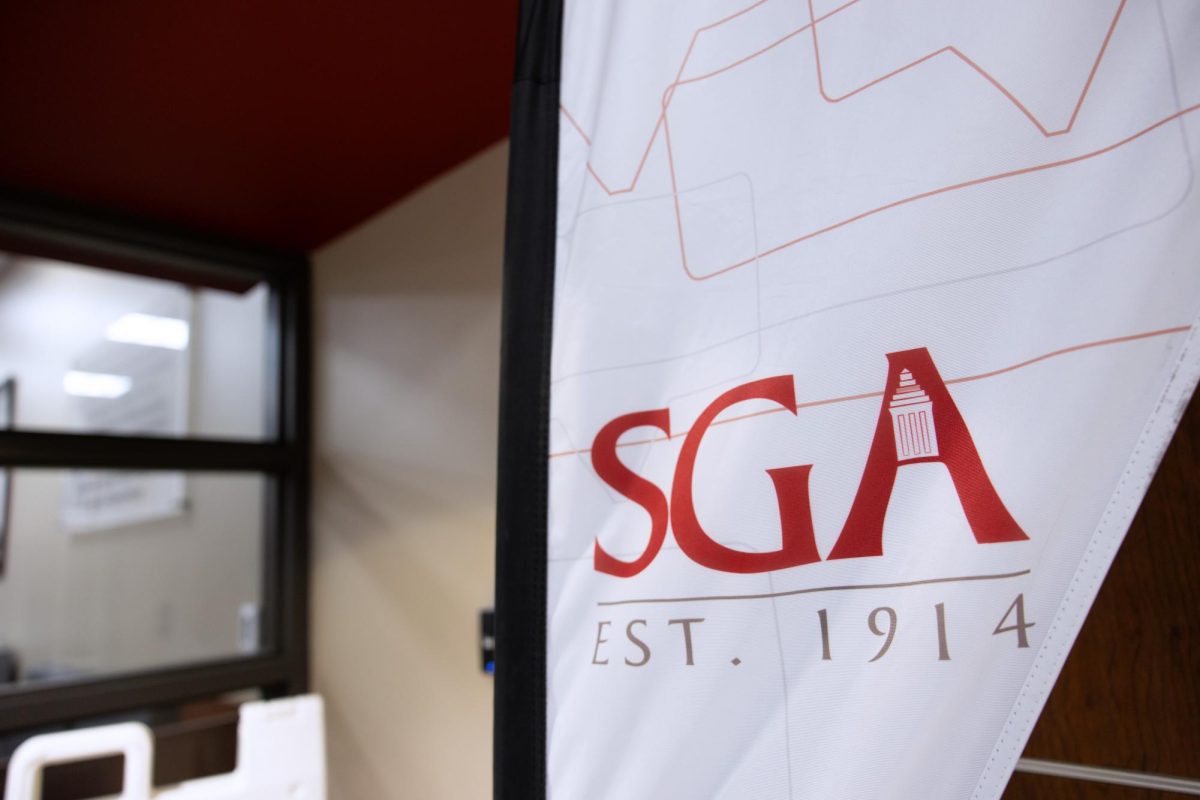
Throughout the course of their educational careers, students can encounter a wide range of aptitude tests, from the ACT to the GRE to the LSAT. When Jeff Priester, a junior majoring in finance, took the Bloomberg Aptitude Test, which serves to connect business and finance-related employers with students, he placed in the Americas Top 5.
The score places him in the 99th percentile and the Bloomberg Institute’s Hall of Fame.
“I really wasn’t too worried about it, because just to get credit for my class I had to get a 200 and I ended up with a 710,” Priester said. “I thought I did all right. I didn’t think I did great. I thought I could do much better.”
The test is administered both at certain on-campus locations and online rather than at limited, specific times throughout the year. As long as the test taker has access to a computer with a webcam or can attend one of the test sessions, it is open for anyone to take, whether or not they are majoring in or have graduated from a business-related field.
Monica Lopez, Americas Regional Manager at Bloomberg Institute and overseer of the Americas University Sales Team, said the BAT is very important because it gives both employers and students a wide pool of potential connections.
“It is very important because it allows students another avenue, another channel, to become visible to employers who are looking to fill internships and other areas of employment,” she said. “It allows them to see how they score in comparison to their global peers.”
The Bloomberg Aptitude Test, originally known as the Bloomberg Assessment Test when its questions were knowledge-based rather than skills assessment-based, has been taken by more than 160,000 people, 18 percent of whom do not identify as having a background in business or finance.
The BAT must be completed within two hours, is made up of 100 multiple-choice questions and it ranks test takers in eight categories: News Analysis, Economics, Math Skills, Analytical Reasoning, Financial Statements Analysis, Investment Banking, Global Markets and Chart and Graph Analysis.
“[It] allows students to reflect on their finance potential and career skills,” Lopez said. “It helps them achieve and get their career goals in line. They get connected with other employers who may not have been recruiting on their campus, who may not have been recruited otherwise because of that. [The employers] are able to reach a threshold of more than 3,500 universities.”
For each of the eight key performance categories, test takers are shown the national average and how they scored in comparison, allowing them to measure their results against other test takers. Even if someone scores below or at the median in one, or more than one, of the categories, they won’t necessarily be overlooked by employers.
“Employers can customize their search to target specific candidates, so if a student preforms very well in a particular section, if that’s something the employer is seeking, they’re able to search by that category,” Lopez said.
Priester scored above the median score in every category, with an overall score of 710. His friend, intramural teammate and roommate, Eric Burke, a junior majoring in chemical engineering, said while he was not familiar with the BAT, Priester’s success is the kind of thing he has almost come to expect out of him.
“Jeff is very smart,” he said. “Everyone that knows him understands that he is smart. Sure, he applies himself, but even talking to him, you get a feel for his straight intelligence. On top of his natural ability, he also dedicates himself to things that are important to him. When he is doing [Culverhouse Investment Management Group] stuff, he will stay up until the crack of dawn working to make sure his presentation is as good as it can possibly be. Obviously, these attributes are what every employer wants to have.”
CIMG is a student-run organization that manages around $535,000 for the University, Priester said. As the committee head of the energy and utility sector, he is in charge of leading and instructing five analysts on investment strategies.
Priester said he is thinking about pursuing a Master of Science in Finance at the University, and that after college he is hoping to work in investment banking in either New York City or Houston.
Burke said he believes Priester has what it takes to succeed at whatever he sets his mind to.
“Jeff is competitive. This is a good thing in intramurals, and it is a good thing in a business setting,” he said. “That desire to win, to be successful, is another one of those skills that a company needs so that the company can thrive.”
(See also “Culverhouse business school ranks No. 29 nationally“)








